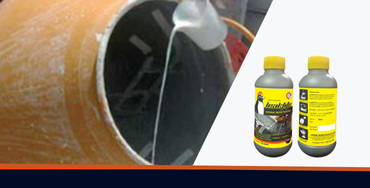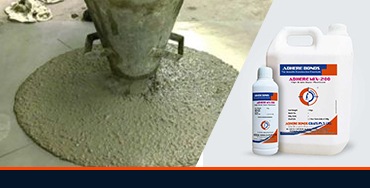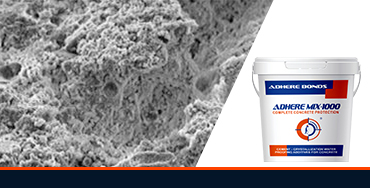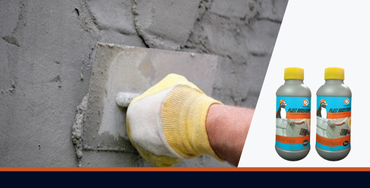
Integral Waterproofing Liquid
liquid waterproofing admixture used in concrete and cement mortar to reduce the water demand and improves the impermeability in concrete.

Super plasticizer
High-Grade based on naphthalene, recommended for increased workability and early age strengths of concrete.

Crystalline Admixture
Additives For Concrete is a very concentrated waterproofing material consisting of Portland cement and active waterproofing chemicals. ADHERE MIX- 1000 is a waterproofing cementitious, which integral to parts of concrete to form a crystallization process.

Plaster Boost
Improve plaster performance with ADHERE Plaster Booster – boosts bonding, reduces cracks, and ensures a smoother, durable finish for all cement plastering works.
